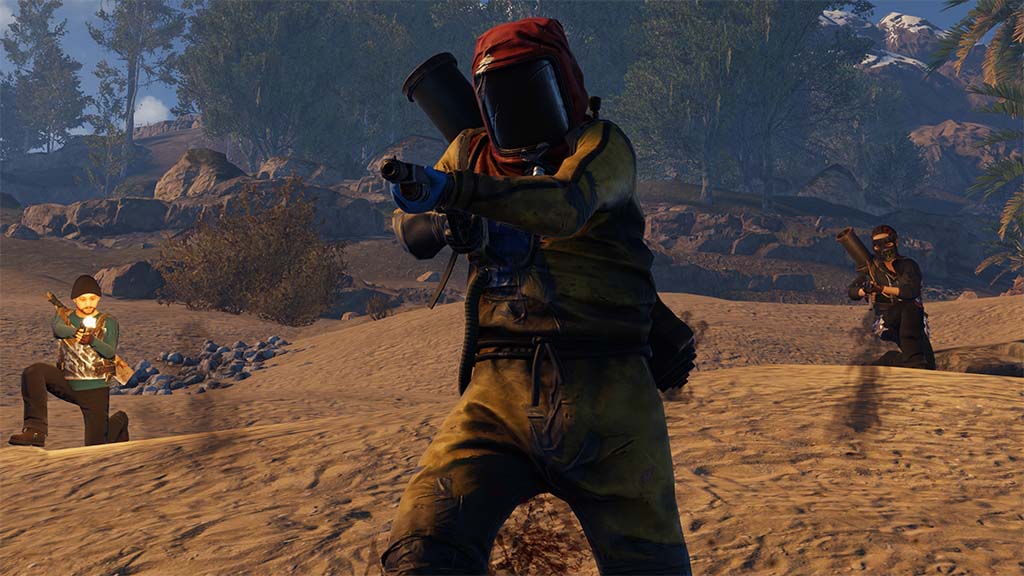
The gaming industry has expanded far beyond entertainment. This digital world is a place where creativity flourishes, strong friendships form, and valuable skills are learned. Video games also offer a relaxing escape from the troubles of the real world.
But unfortunately, this virtual landscape comes with its own perils (and no, I don’t mean dragons or evil wizards). Cybercriminals often access these games in order to steal and manipulate personal data from players who don’t take the proper precautions.
Keep your gaming habits safe and secure by educating yourself about identity theft in gaming and how to avoid it. To help you out, we’ve created this easy guide.
What is Identity Theft in Gaming?
The first step to gaming safely is understanding the risks associated with the hobby, particularly identity theft. This refers to the act of maliciously obtaining and exploiting a player’s personal information from a video game.
The information obtained by the hacker could be anything from financial information to passwords to private messages.
Here are 5 tips to avoid identity theft while gaming
1. Don’t Release Personal Information
Be careful of what you put out there. Avoid disclosing the following personal information:
- Your full name.
- Address.
- Phone number.
- Financial information.
Cyber attacks are on the up and up. Research shows that web application attacks were up 167% year-on-year (YOY) from May 2021 to April 2022. These attacks exploit vulnerabilities within websites and can cause some serious harm.
The consequences of gaming-related identity theft can extend far beyond the virtual world, leading to financial losses, damaged credit scores, and even legal complications. Be sure to safeguard your personal information like you would a physical credit card or passport.
2. Stay Away From Pirated Games
If you don’t have access to a game or want to avoid paying for one, turning to pirated games might seem like the easy way out. While these games may seem harmless, they often come with dangerous malware that could compromise your personal data.
In fact, the first half of 2022 saw a 13% increase in malicious software attacks compared with the first half of 2021.
When you download and install pirated games, you expose your computer or device to potential security breaches, data theft, and system instability. These risks can compromise your personal information and sensitive data.
Protect your data by purchasing legitimate copies of games from authorized sources. Plus, you’ll be supporting the gaming industry and using the most up-to-date version of that game.
3. Look for Signs of Security
Always double-check the security of a gaming website before you enter personal information. One way to do this is by making sure there’s a padlock icon in the browser’s address bar. You should also check to see if “https://” appears in the website address.
Double-checking these security indicators will make sure your private information isn’t accessible to a hacker. You can also review a game’s security by reading reviews or researching the game ahead of time. And if you can, try to avoid entering sensitive information altogether.
4. Only Use One Card or Bank Account
Prepare for the worst by using only one credit card or bank account with all your games. That way, if there is any fraud, only one account is compromised. This also makes it easier to monitor the financial activity associated with the game.
This adds an extra layer of protection should a hacker gain access to your account. And if you ever notice anything suspicious, report it immediately.
5. Protect Your Accounts
Simple security measures go a long way when it comes to cybersecurity. Start by using strong and unique passwords for each account and enabling two-factor authentication. Be very wary of any emails or links asking for your login credentials.
There are also security tools that can help bolster your cyber safety. Consider using a VPN for gaming to encrypt your online activities and protect your private information.
Remember that protecting your safety is just as important as mastering those gaming skills.
So implement these simple steps and game away, knowing that your personal information is protected from malicious hackers that roam the virtual landscape.







